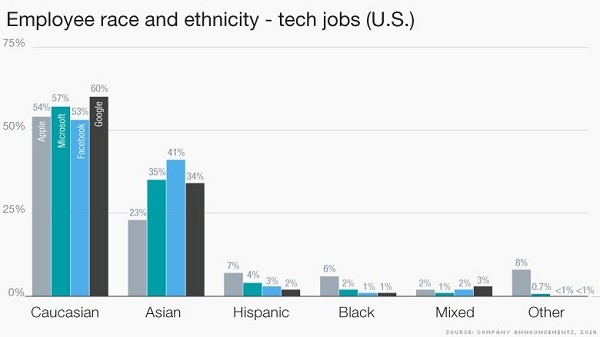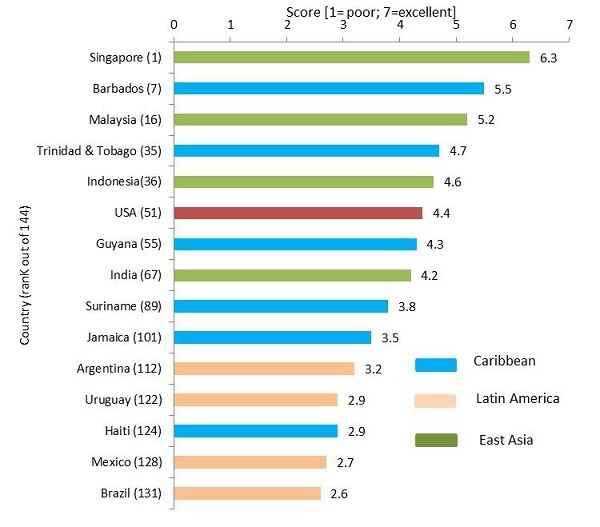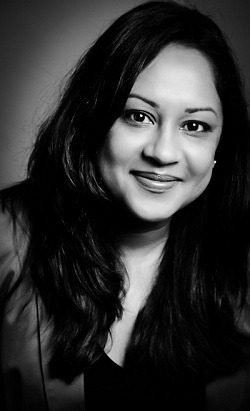The lack of racial diversity in the tech industry is a big problem, one that Silicon Valley’s largest firms are trying to solve. For companies like Apple, Microsoft, Facebook and Google, a more diverse workplace means a better grasp of what customers want, which translates into increased sales and bigger profits.

The Caribbean region, with its diverse population, stands to benefit from this turning tide, but the region’s capacity to seize the opportunity still depends on the ability of its leaders to make some critical choices. How should Caribbean leaders take advantage of this and other opportunities presented by the global tech industry? الرهان الرياضي
Part of the answer must be a deliberate decision to focus on Science, Technology, Engineering and Mathematics, commonly known as STEM education. For Caribbean leaders, measuring the value of STEM education isn’t an academic exercise, it’s serious business. And a substantial investment in greater math and science literacy will be required to enable Caribbean competitiveness and increase technological innovation, if the region is to make good on the potential locked in its younger generations. العاب القمار اون لاين
For the moment, the region hardly seems to be keeping pace with STEM education. In the Global Competitiveness Index 2014-2015, Barbados is the highest ranked country in the Western Hemisphere at seventh, when measuring the quality of math and science education. But the rest of the region lags behind: Trinidad and Tobago ranked 35th, Guyana 55th, Suriname 89th, Jamaica 101st, and Haiti 124th.

“We know that we need to generate a larger number of STEM graduates, at all levels, in all disciplines,” says Sir Hilary Beckles, Vice Chancellor of The University of the West Indies (UWI).
“Our strategic plan identifies that by 2020, we should be training at least 50 per cent of the students at The UWI in STEM and STEM-related disciplines. Why? Because we recognise that significant headway has been made in the Humanities and in the Social Sciences but we also realise that the science and technology infrastructure of Caribbean society and civilisation needs to be developed.”
In May 2015, Professor Sir Hilary Beckles was installed as the 8th Vice-Chancellor of The University of the West Indies. Since then, he has articulated a leadership vision which includes aligning the university to better enable sustainable Caribbean development and competitive Caribbean economies.
There are some encouraging signs. The growth of The UWI St Augustine Campus in Trinidad and Tobago is centring around STEM education, in particular Engineering. The Mona Campus in Jamaica is investing heavily in a new Faculty of Medicine. And the Cave Hill Campus in Barbados has rolled out a science and technology initiative, with a view of shifting STEM education enrolment to 30 per cent of the overall student population.
But the challenges, Beckles said, remain deep-rooted in the region’s secondary education system.
“The plumbing is broken in the basement,” he said.
Beckles, who is also chairman of the Caribbean Examinations Council (CXC), described secondary students’ results in the computational and mathematical subjects as “very disturbing”.
“We are very concerned about the inadequate performance of our teenagers in the secondary schools. لعبة تربح فلوس And if we have a suppressed performance in these disciplines at the secondary level, we can continue to expect problems in growing enrolment at the tertiary level.”
Part of the underlying problem, Beckles said, is the leakage of STEM graduates away from teaching jobs, into other, more financially rewarding professions.
“Across the region, we have non-Science graduates teaching Science classes, in part because teaching does not pay as well as jobs in other sectors.”
If Beckles is sounding a call to arms for Caribbean educators, he isn’t the first and he’s hardly alone.
Delivering the keynote address at the 14th annual conference of the Association of Caribbean Higher Education Administrators in July at The UWI St Augustine campus, Anthony Carmona, President of Trinidad and Tobago, used strong words to highlight the need to re-invent Caribbean education.
“Our Caribbean education system needs an overhaul, not just a maintenance work or job. There is a breakdown of the system from the secondary school level upward. University lecturers often complain that matriculated students have great difficulty in composing a grammatically correct sentence, cannot pronounce words correctly, and display a lack of deductive reasoning…We are forever aspiring for the fruit-laden tree even when we forget to plant the seed and the seed begins at Primary school level.”
Information and Communications Technologies should be made compulsory, Carmona said, as they were every bit as essential as Mathematics and English.
“We have the potential of our people,” Carmona said. “The imperative is to harness all of that raw brilliance and convert it into use and benefit for our countries.

Rhonda Jaipaul-O’Garro is Manager, Marketing and Communications at The University of the West Indies (UWI), and is pursuing a PhD in Business Administration at UWI St Augustine.
